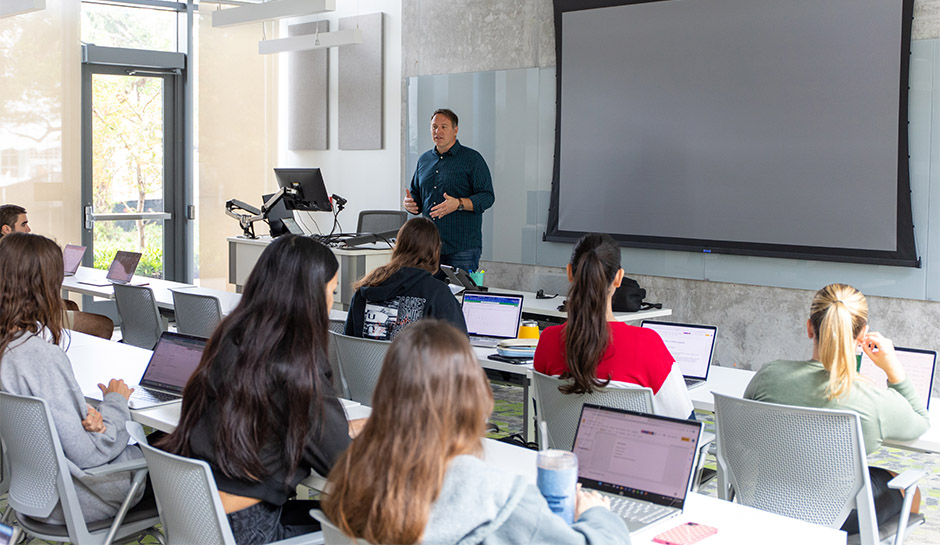Students taking a writing class with Ben Lauren, an associate professor in the Department of Writing Studies, learn how to write everything from articles to podcasts. They might even pick up a few pointers on how to write songs, too.
A singer, guitarist, and songwriter, Lauren has been putting out records for almost two decades, including with his current group, The Callback. The way Lauren sees it, his creative identity as a musician has more applications to learning writing than you might think.
“Being in a band involves cultivating participation from disparate groups of people who have different goals and motivations,” he says. “I didn’t have the language for it when I started playing in bands, but it was coalitional – getting different groups to coordinate and move toward goals together.
“That was a big lesson from music, and it applies to the work of writing, too.”
Lauren joined the University of Miami from Michigan State University in the fall of 2022. His courses include first-year writing, professional writing, and writing for civic engagement.
Whether the goal is to make a living as a writer or find ways to apply writing to other professions, Lauren firmly believes that everybody needs to know how to put words together clearly, correctly, and compellingly. “Writing has a role in everyday life no matter the job,” he says.
All of Lauren’s classes have a civic engagement component, delving into rhetorical theory, community, experiential learning, and institutional and organizational change. “The overarching goal,” he says, “is to help students use writing to engage with and change the world.”
He wants students to learn to practice their craft ethically, emphasizing accountability and reciprocity to the communities with whom they interact. “Doing this work takes long-term engagement: building relationships and connecting with folks to more fully understand your role and what you can do to help.”
It sounds something like the sort of networking that bands do to build an audience. When he’s not teaching, Lauren still makes music. His next project is an ambitious multimedia work for University of Michigan Press involving original songs, interviews, and essays on the intersection of music, grief, and rhetorical theory.
“When it comes to gaining a nuanced understanding of different communities, needs, and goals, I use the word ‘with,’ not ‘on,’” he says. “That centers how you should think about doing the work of writing, whatever the subject. If you’re not sure you’re ‘with’ someone or ‘in’ community, it’s time to pause, reflect, and make sure you have a sense of what’s going on, what you’re doing, and why you’re doing it.”

